JIU LIVRE GRAPPLING OFFICE MARTIAL ARTS FOR ALL AGES!
How Jiu-Jitsu Can Improve Focus and Productivity in the Workplace
Jiu-Jitsu has become more than just a martial art—it’s a powerful tool for personal and professional growth. From tech startups to large corporations, many have embraced Jiu-Jitsu as a way to foster focus, improve productivity, and instill resilience among their employees. In today's fast-paced and competitive workplace, focus and productivity have become key differentiators of success. So, how does Jiu-Jitsu—a martial art known for its physical intensity—translate into these cognitive and professional gains?
The Philosophy of Jiu-Jitsu and its Applications in the Workplace
At the core of Jiu-Jitsu lies a philosophy deeply rooted in balance, adaptability, and strategic thinking. Practitioners are taught to stay calm under pressure, assess their situation, and act with precision. This approach aligns seamlessly with the mental discipline required in a professional environment. Whether it’s managing a team or solving a complex problem, the principles learned on the mat carry over to the boardroom.
Jiu-Jitsu’s teachings encourage practitioners to embrace challenges and adapt to shifting circumstances—valuable lessons in a constantly evolving workplace. Much like rolling with an opponent, navigating a workday requires mental agility and the ability to think critically under pressure.
Building Mental Toughness through Jiu-Jitsu
The modern workplace can be demanding, with constant deadlines, high expectations, and the pressure to perform consistently. Jiu-Jitsu builds mental toughness by placing practitioners in difficult, often uncomfortable, situations, requiring them to persevere and remain composed. This mental resilience is essential when facing obstacles at work, allowing employees to stay calm, collected, and solution-focused when challenges arise.
Whether it’s enduring a tight submission or overcoming workplace adversity, Jiu-Jitsu teaches the value of grit and determination—key traits in boosting workplace productivity.
Developing Focus and Concentration with Jiu-Jitsu
Focus and concentration are essential components of success, and Jiu-Jitsu is a masterclass in honing these skills. During a sparring session, practitioners must stay completely present, focusing on their opponent's movements, anticipating their next step, and reacting accordingly. This sharpens the brain’s ability to stay locked into the present moment—a crucial asset in professional settings where multitasking and distractions can often derail productivity.
Practicing Jiu-Jitsu trains the brain to eliminate noise and maintain laser-like focus, even under the most stressful circumstances. This ability to concentrate on the task at hand can lead to improved efficiency and better performance in the workplace.
Stress Management: Jiu-Jitsu as a Tool for Reducing Workplace Anxiety
One of the biggest challenges in the modern office is managing stress. Jiu-Jitsu offers a unique way to channel stress and transform it into productive energy. Engaging in a physical activity like Jiu-Jitsu releases endorphins, which naturally combat stress and anxiety. The act of training serves as a form of active meditation, allowing practitioners to release the day's built-up tension and return to work feeling refreshed.
The physical nature of Jiu-Jitsu not only helps in reducing stress but also clears the mind, making it easier to focus and make decisions without being clouded by anxiety or pressure.
Jiu-Jitsu and Problem-Solving Skills in the Office
In Jiu-Jitsu, every session is a problem-solving exercise. When facing an opponent, practitioners must constantly assess, strategize, and adapt. This sharpens their analytical and critical thinking skills, which are directly transferable to the workplace. Whether navigating a difficult negotiation or resolving a client issue, the same problem-solving mindset cultivated in Jiu-Jitsu becomes an asset.
The adaptability and quick thinking learned on the mat enable employees to approach challenges with a fresh perspective, making them more effective and proactive in the workplace.
Enhancing Work-Life Balance with Jiu-Jitsu
Jiu-Jitsu emphasizes the importance of balance—not just on the mat, but in life as a whole. The discipline encourages a well-rounded lifestyle where physical, mental, and emotional health are given equal importance. For professionals, this lesson translates to better work-life balance. By making time for activities like Jiu-Jitsu, employees can recharge their mental and physical energy, leading to increased productivity when they're back at work.
Balancing work with regular physical activity prevents burnout, keeps motivation high, and enhances overall job satisfaction.
Cultivating Patience and Persistence
Jiu-Jitsu is a long-term commitment that requires patience and persistence. Mastery doesn’t come overnight, and neither do professional achievements. The martial art teaches practitioners to appreciate the process, embracing small victories while working toward larger goals. This lesson in persistence is invaluable in the workplace, where long-term projects and professional development often require sustained effort over time.
By cultivating patience on the mat, employees can better handle setbacks and stay committed to their goals at work, fostering a productive and forward-thinking mindset.
How Jiu-Jitsu Promotes Teamwork and Collaboration
While Jiu-Jitsu is often seen as an individual sport, it requires deep collaboration with training partners. Sparring partners work together to improve each other's skills, relying on trust, communication, and mutual respect. These teamwork lessons are essential in the workplace, where collaboration and effective communication are critical for success.
By training together, Jiu-Jitsu practitioners develop stronger interpersonal skills that directly benefit workplace dynamics, encouraging open dialogue, cooperation, and team cohesion.
Improving Self-Confidence and Assertiveness
Jiu-Jitsu builds self-confidence through the process of mastering challenging techniques and overcoming physical and mental hurdles. This newfound self-assurance translates into the workplace, empowering employees to take initiative, contribute ideas, and tackle projects with confidence. Assertiveness, a key skill for career advancement, is naturally developed through regular practice, as practitioners learn to stand their ground and express themselves effectively.
Confidence gained from Jiu-Jitsu enables professionals to be more assertive in meetings, presentations, and negotiations, boosting their overall productivity and impact.
Energy Management: Boosting Physical and Mental Stamina
Physical fitness is closely linked to mental stamina, and Jiu-Jitsu provides both. By improving cardiovascular health, strength, and endurance, practitioners can handle long workdays with more energy and focus. Regular Jiu-Jitsu practice enhances physical health, which in turn increases mental clarity and reduces fatigue, making it easier to stay productive throughout the day.
Employees who incorporate Jiu-Jitsu into their routine often report higher energy levels and the ability to remain engaged and focused, even during high-pressure projects.
Learning to Stay Calm Under Pressure
In Jiu-Jitsu, staying calm under pressure is essential to success. During sparring, when opponents apply force or attempt submissions, practitioners must remain composed to find an escape or counter. This ability to remain calm and collected directly translates to workplace scenarios, where high-pressure situations like deadlines or difficult client interactions require a steady hand.
Staying calm under pressure not only improves focus but also ensures better decision-making, leading to more effective outcomes in the office.
Jiu-Jitsu as a Creative Outlet for Problem Solving
Beyond the physical aspect, Jiu-Jitsu is an art of strategy and creativity. Each sparring session presents an opportunity to think outside the box, devising new approaches to overcome an opponent’s tactics. This creative problem-solving skill can be applied directly to the workplace, where innovation and creative thinking are often needed to stay ahead of the competition.
By engaging in Jiu-Jitsu, employees can unlock their creative potential, bringing fresh ideas and innovative solutions to their teams.
The Importance of Humility and Continuous Learning
Humility is a key tenet of Jiu-Jitsu. No matter how skilled a practitioner becomes, there’s always more to learn. This mindset of continuous improvement fosters humility, which is equally important in professional development. By embracing a growth mindset, employees are more open to feedback, learning opportunities, and personal growth, which ultimately enhances their productivity and value to the organization.
Jiu-Jitsu teaches that learning never stops, a principle that can drive continuous improvement and success in the workplace.
Practical Ways to Incorporate Jiu-Jitsu into the Workday
Employers looking to bring the benefits of Jiu-Jitsu into the workplace can start by offering classes or encouraging employees to take part in local Jiu-Jitsu sessions. Additionally, mindfulness and visualization techniques from Jiu-Jitsu can be practiced during breaks to help employees refocus and recharge.
Setting aside time for physical activity, even briefly during the day, can significantly boost focus and productivity, contributing to a healthier, more dynamic work environment.
Final Thoughts
Jiu-Jitsu offers a wide range of benefits for focus and productivity in the workplace. From enhancing mental resilience and problem-solving skills to promoting a balanced lifestyle, this martial art provides practical tools that can be applied both on and off the mat. By embracing the principles of Jiu-Jitsu, professionals can improve their focus, manage stress more effectively, and cultivate a mindset geared toward continuous growth and productivity.
Frequently Asked Questions (FAQs)
1. How can Jiu-Jitsu help improve focus at work?
Jiu-Jitsu helps improve focus by training the mind to stay present in high-pressure situations. On the mat, practitioners need to concentrate on their
opponent’s movements and react quickly, sharpening their ability to focus and eliminate distractions. This mental discipline carries over into the workplace, allowing professionals to concentrate on tasks without getting overwhelmed.
2. Is Jiu-Jitsu suitable for reducing workplace stress?
Absolutely! Jiu-Jitsu is an excellent stress reliever. The physical activity releases endorphins, which naturally reduce stress and promote a sense of calm. Additionally, the practice of Jiu-Jitsu teaches emotional regulation, helping individuals stay composed under pressure—skills that are invaluable in managing workplace stress and anxiety.
3. How does Jiu-Jitsu improve productivity?
Jiu-Jitsu builds mental resilience, focus, and problem-solving skills, all of which enhance productivity. By
training in Jiu-Jitsu, employees develop the ability to stay calm under pressure, manage their time effectively, and think critically about solutions to problems, making them more efficient in their daily tasks.
4. Can Jiu-Jitsu really improve teamwork and collaboration in the office?
Yes, Jiu-Jitsu teaches essential skills like communication, trust, and collaboration through partner drills and sparring. These lessons translate to the workplace, fostering better teamwork and more effective communication among colleagues, leading to improved workplace dynamics and productivity.
5. How can employers incorporate Jiu-Jitsu into the workplace?
Employers can offer Jiu-Jitsu classes at work or encourage employees to join local sessions. Additionally, incorporating short mindfulness or breathing techniques from Jiu-Jitsu into daily breaks can help employees reset mentally. Promoting physical activity as part of the company culture enhances focus, reduces stress, and boosts overall productivity.
6. Is Jiu-Jitsu only about physical fitness, or does it benefit mental health too?
While Jiu-Jitsu offers significant physical benefits, it also greatly enhances mental health. It promotes emotional regulation, resilience, and a calm mindset, which helps in managing workplace pressures. Additionally, Jiu-Jitsu fosters self-confidence, assertiveness, and a sense of achievement, contributing to improved mental well-being.
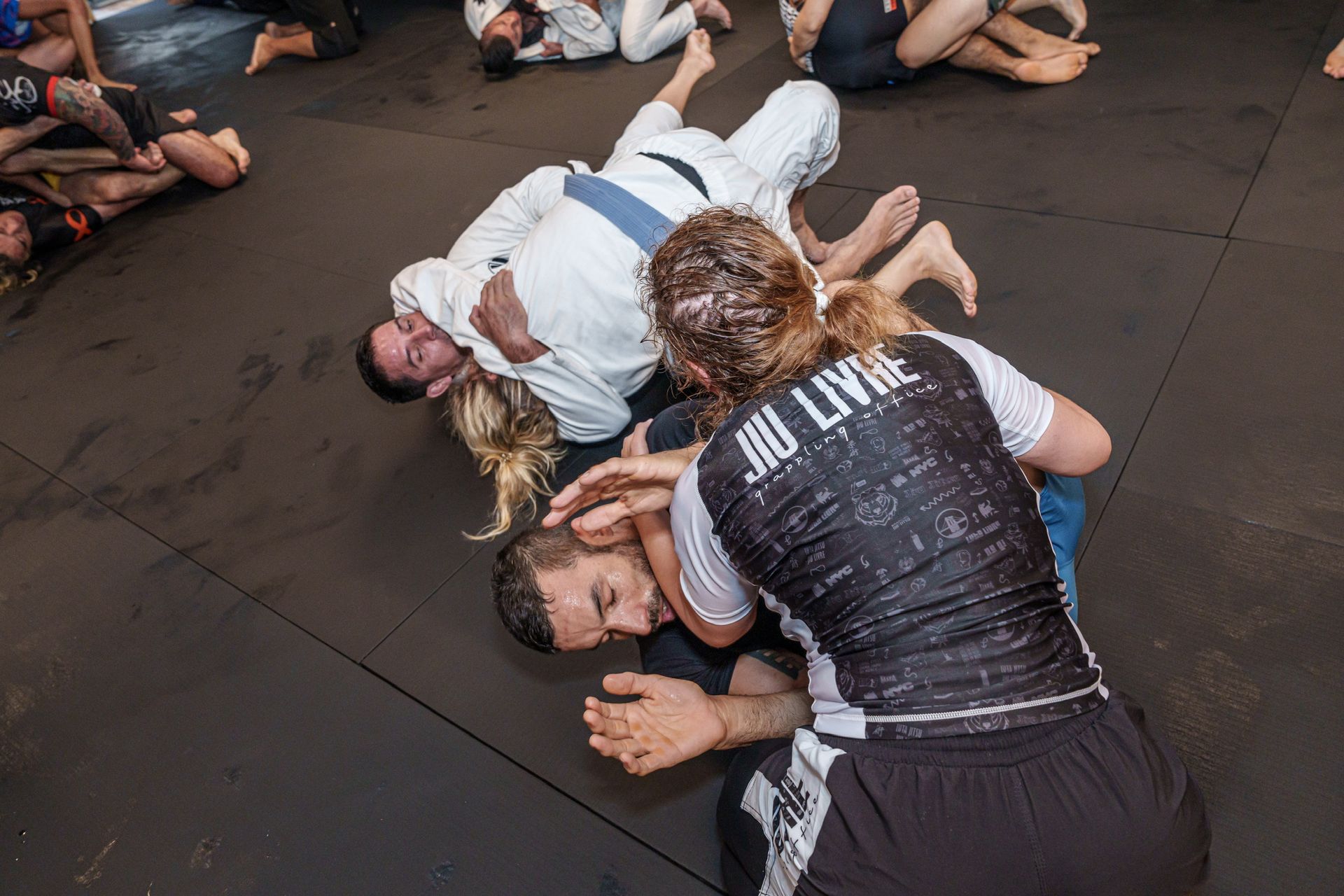
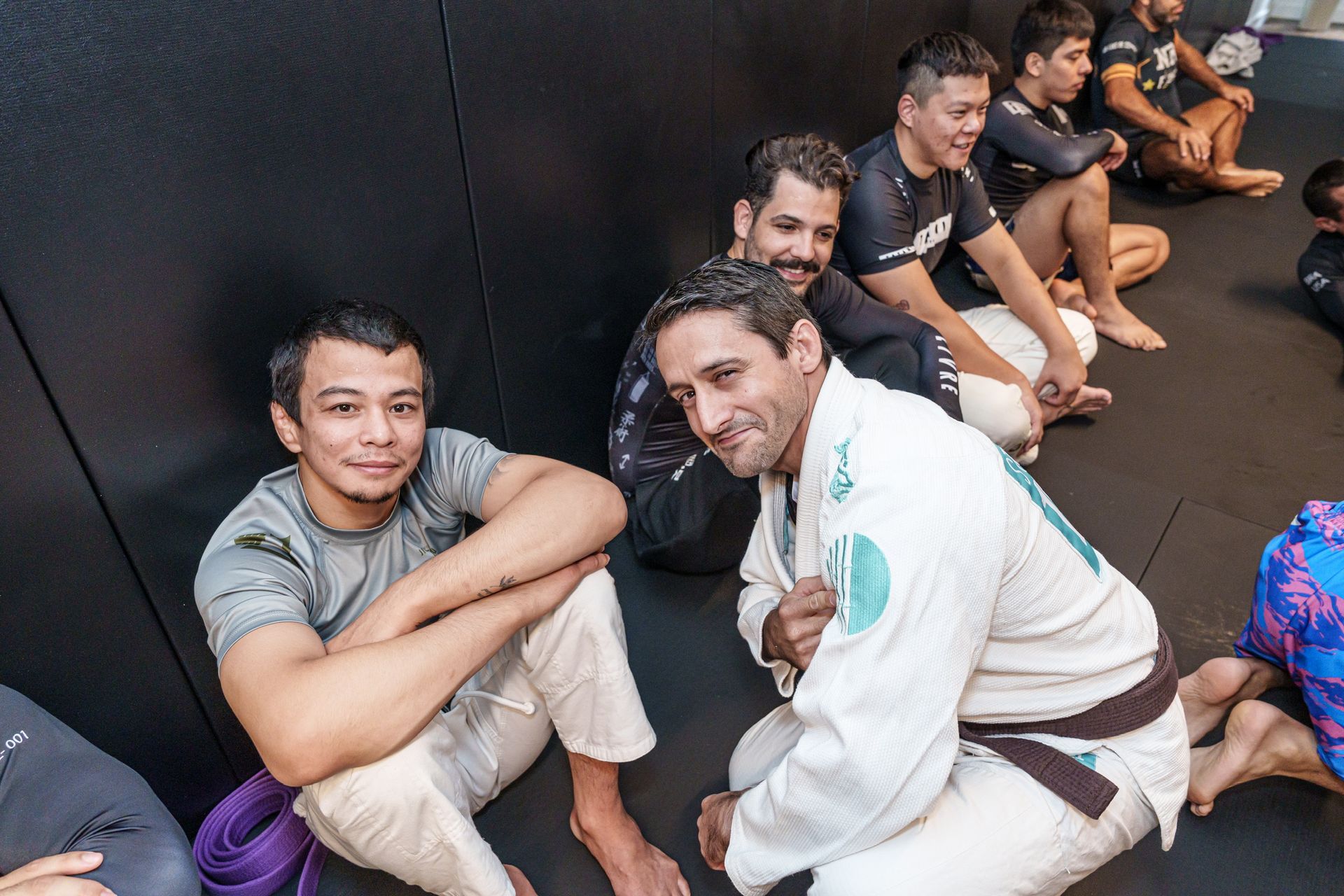
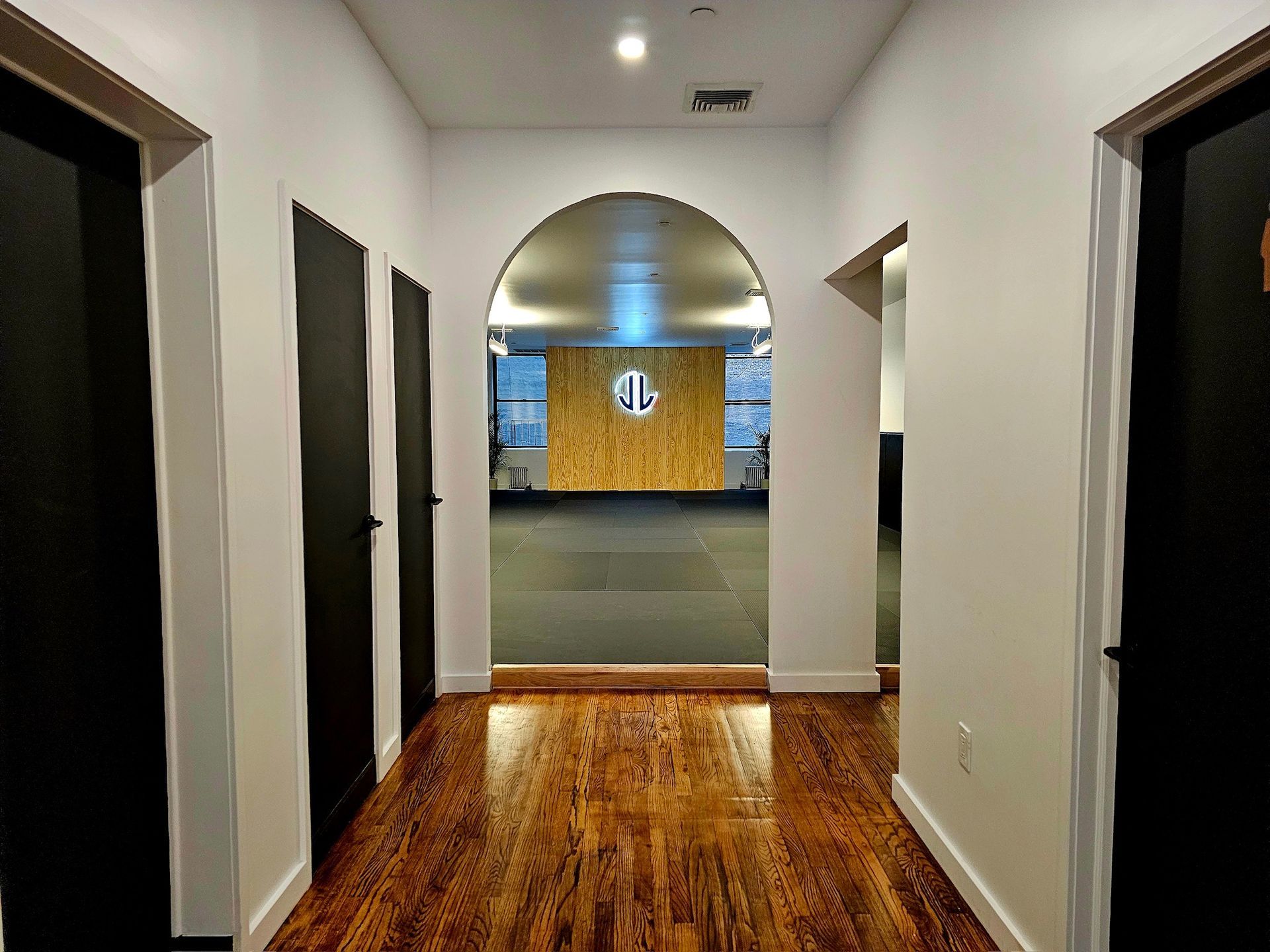
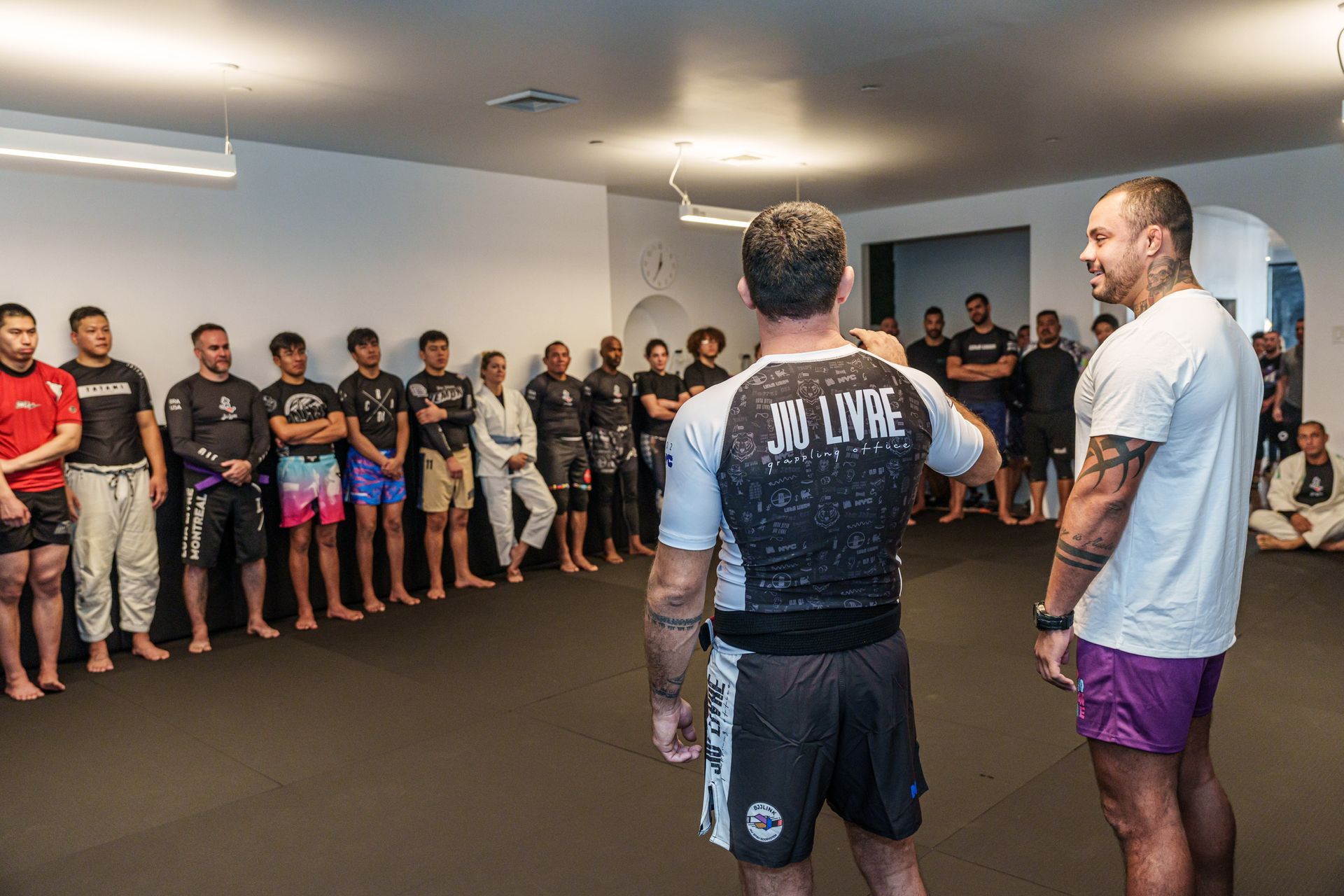
Request Information
Get started today with our EXCLUSIVE offer!
ACCESS OUR SCHEDULE
& EXCLUSIVE WEB SPECIAL
All Rights Reserved | Brava Holdings Inc.
